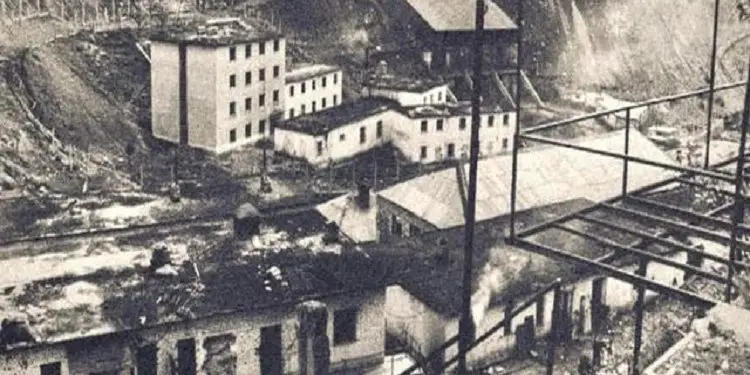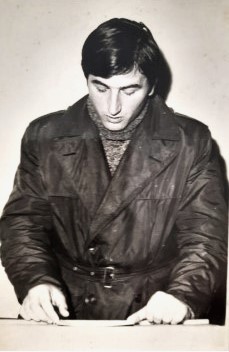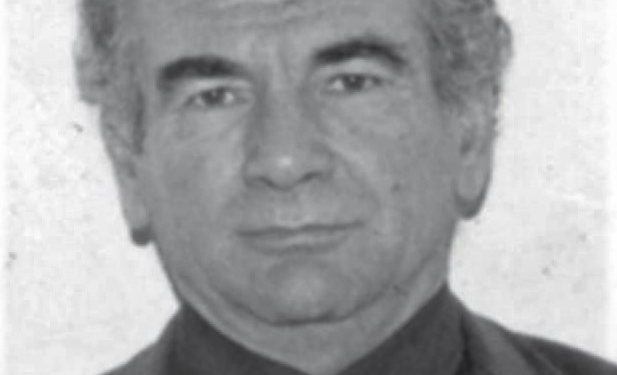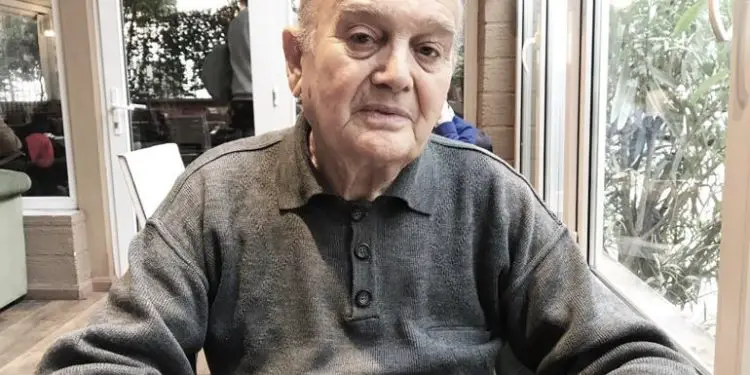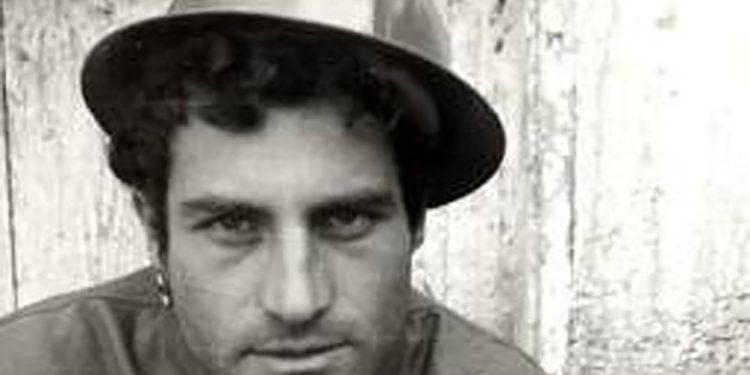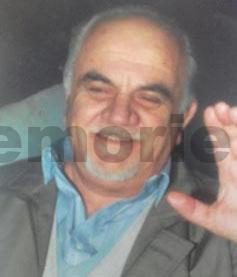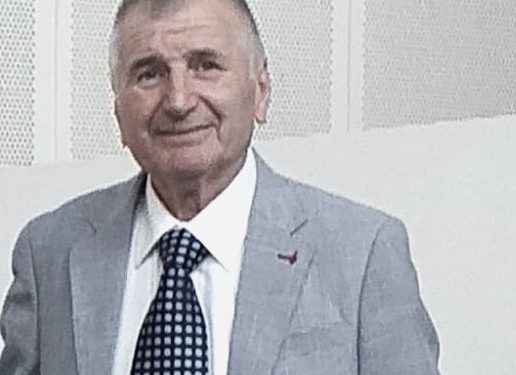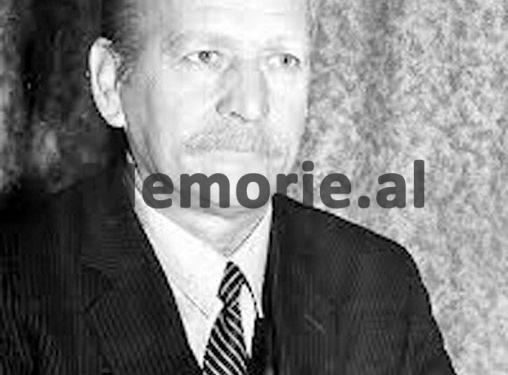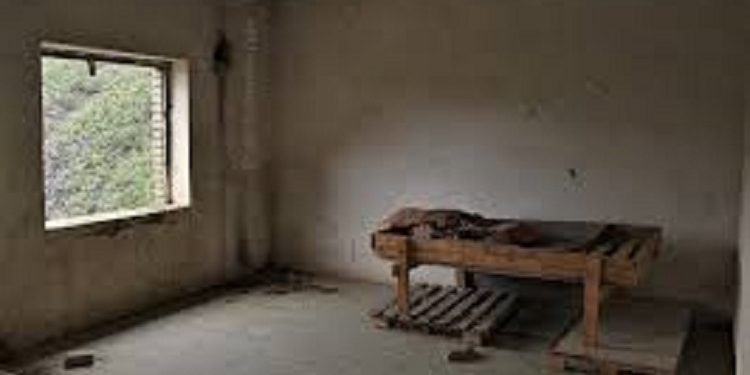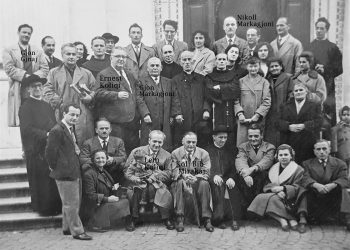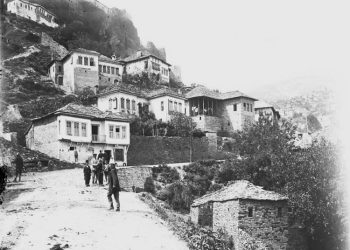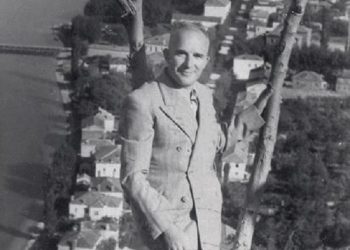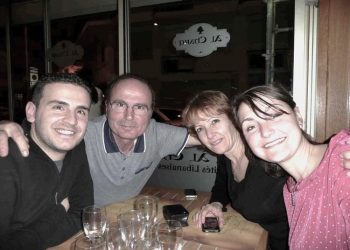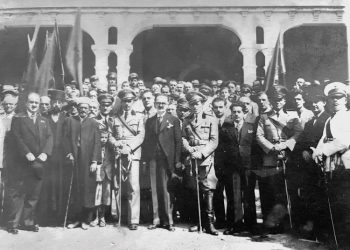By Nestor Topencharov
Part thirteen
THE DRAMA OF LIFE
(THE STORY OF A FAMILY)
I dedicate this book to: All fellow sufferers. Their families. And in particular, to people who did not have the opportunity to tell the odyssey of life, during the communist dictatorship.
FOREWORD
Memorie.al / I were born in the city of Korça, on October 22, 1953. I left Albania in October 1990, after we were given the right to repatriate to Yugoslavia (now North Macedonia) . In June 1992, I immigrated to Italy, where I still live today. Although I have been away for 32 years, I did not cut ties, as Albania was the country of my birth, where I spent 37 years, and that part of my blood is Albanian. Years later, the ties with Albania were strengthened, as I also took my wife from Durrës. We came every year on vacation, but the short time of our stay meant that many contacts were cut off. However, true friends and comrades remained forever in my heart.
In the last three years, I did not have the opportunity to visit Albania. But during 2022, I came several times. My commitment on the one hand and the coincidence on the other, made it possible for me to re-establish connections with friends and colleagues whom I had not seen for decades. Knowing my past, some of them advised me to write down what had happened in my life. At first, this idea seemed like a utopia to me, since even though I had been a good student; I had no inclination towards drafting. Then I reflected. I would just write my story, true events, where not much inspiration was needed. Perhaps a writer would know how to present these events, as a true pen artist knows. While I will write them, without many descriptions: briefly, simply, naked, as they happened.
Something else that pushed me even more to write this book was an interview on TV Klan, which I saw in October of this year, directed by the well-known journalist Blendi Fevziu. I didn’t seek revenge. But I didn’t even have justice. With the help of this book, I will make known to the Albanian public opinion, the role of the individuals who contributed to my suffering and that of my family. And today, I am putting my finger on these “beings”, not for the task they had, but for the way they performed it. I will start my writing with my grandfather, from my mother’s side, to continue with my father, where I will touch on the most important moments of their lives. This will help the reader to know my background.
Then I will also talk about myself. In this book I will also tell some events, one more dramatic than the other, that happened to people I had the honor of knowing. I am glad that many books have been published on the suffering and persecution of “enemies of the people” and their families in internment camps and prisons during the communist dictatorship. I was able to read some of these works. I believe that this book, in a modest way, will contribute to know even more the inhumane methods of the State Security, the way they created accusations and how they destroyed people and families to keep the people under terror.
Author
December, 2022
Continues from last issue
CHAPTER THREE
– “They are enemies,” said the prosecutor.
He addressed me in such a way, as if I were not an enemy. Then he asked to know where I had been at that moment and that maybe someone who had assisted had told me what had happened. I tried to be careful in my response, because it only takes a little to create a problem.
When they saw that they could not get any testimony from me, they let me go. When I was leaving the hall, policeman Gjergj also caught my eye. Since that day, this policeman, not only did not fall on my neck anymore, but sometimes when he passed by me, he gave me a slight smile.
The command and operatives had informants among the convicts, who announced everything that happened in the camp. They tried to have as many of them as possible, not only in the camp but also in the work brigades, to control the situation. A part of them was used to produce witnesses in the re-convictions.
Compared to the number of prisoners, these were few, so much so that they often produced the same witness in different trials. Most of the prisoners were honest people. There were those who openly spoke out against the regime, and others, with the trouble that had befallen them, saw the end of the years they had left, to return to their families.
In Spaç there were convicts of all ages. However, young people predominated, the labor force for the mine. Even the education they had completed was different. Some were peasants, others workers, but there were also many intellectuals, whom the regime preferred to have in prison.
When I first went to Spaç, I met Ziso Vangjeli. Since I was from Korça, he asked me about a friend he had at the high school in Korça. Until that moment, none of the Korcars had been able to give him an answer.
I found out that it was about my great uncle, Dhimitri, who had left Albania at the beginning of the war. He was sorry when I told him that he had been dead for years.
He gave me the impression of a man of high intellectual values. I often saw him so old in age, small in stature, living alone. No one came to meet him, there was no help. However, you didn’t see him queuing in the underground canteen, for some bowl of soup, from the excess.
One day I was with my two friends and when I was going to eat something we had cooked, I saw Ziso and invited him with pleasure. He thanked me with that special smile of his, but refused to come.
He had returned to Albania at the beginning of the 60s, after the call that the government made to Albanians living abroad. Loving his country and as a patriot, he thought of contributing. After a few years, he was severely punished as an agent. For many years in the Burrel prison, he was engaged in translating works into English and French.
Then they brought him to Spac. Ziso was part of that group of people, who did not catch the eye (the invisible ones), just like Martini, Raqi, Mehmeti, Rakoja and most of the co-sufferers.
We also had literary and artistic figures. I knew the writer Halil Laze, the comedian of Military show, Dhimitër Furxhi, who had been punished for the barcaletas he told about Enver and the party, the cinematographer Dhimitër Lala, Telat Agollin, the creator of the first Circus in the country. I was lucky enough to meet the writer Zyhdi Morava, with whom we worked for a period in the second area.
I had many conversations with him and Irfan, his cousin. At that time, Zyhdiu continued to write novels and stories, in several notebooks, which circulated around the camp, among people of faith. Writing in prison was forbidden.
For this reason, the manuscripts were hidden under the roof of a reading room or food warehouse. They were safe places, as the checks were done where we slept. During the inspection, the bed broke and the mattress was turned upside down.
If they found any such material, the minimum was 30 days in the dungeon. I did not try the dungeons of Spaçi, but from what the fellow sufferers who tried them said, they had no comparison with the dungeons of the investigation, in the Internal Branches. They were inhuman.
The poor conditions in which you would spend your sentence (especially during the winter), often destroyed your health, and quite a lot of co-sufferers ended up in the prison infirmary.
I remember two of Zyhdi’s stories. I am trying, in short, to tell them. In one, the love story between two young people. The girl did not have a “good biography”. This had encouraged the boy’s family members to intervene and break this relationship. Then this boy who liked fashion and foreign music had gone to prison. Several years had passed.
One night as he slept, surrounded by the heavy air of all those men, the snoring and irregular breathing of his fellow-sufferers, after a tiring work in the mine, he felt the touch of a delicate hand and the appearance of a sweet face, which drew him out sleep.
It was the girl he had loved. At this moment he realized his grave mistake, for the pure love of that girl, the love he had lost. That love that he had not known how to protect.
In the other, the story of a little boy who lived in a house near the forest. His father was in prison. He was sitting on the windowsill and looking out. It was New Year’s Eve and all the wild animals had put aside their feuds and were celebrating together around a fire.
He also waited in vain for his father, who was not coming…! The little one cannot understand how it was possible that, in such a big celebration, the animals were united, but the people were not!
I had spent several years in Spac. The car-jail came twice a month. At that time, the sentences were increased and the number of prisoners went from 600-700 people, when I went, to over 1400, when I was released. One day, a friend showed me at some distance, a young man who had just arrived. He told me that he was a poet and his name was Visar Zhiti. I didn’t get the chance to meet him.
It was the last months of 1982. I had entered the seventh year, when word began to circulate in the camp about amnesty. I did not believe these words, which were repeated every year. This had not happened for 20 years. Then, at the beginning of November, these words became reality and after waiting for the holidays of November 7-8 to pass, on the 15th, the amnesty was granted.
But not all were released. Only those who had “minor” punishments or those who had little left to do came out. The elders were also released. The rest was reduced. I said goodbye to many friends that I left behind in prison.
One of them was Leonidha Marko, from Levani. We hung out with him and Andon. He was severely punished for escaping. Amnesty found him with 8 years in prison already and he had to serve more years. He too had a special story. From a very young age, he had left home to study the art of sailing.
After he had finished school, although he was still young, he was assigned to manage a fishing boat in Durrës. When he was back on vacation, he met up with his childhood friends. In the ongoing conversation, they had told him that they wanted to escape.
Leonidha was a mature boy and understood that this conversation, sooner or later, would end up in the ears of State Security. There were two solutions for him; to denounce or to escape.
Being a man of character, raised in an honest family, he preferred the second path. When he returned to Durrës, he began to plan his departure from Albania. A Greek ship, which was waiting for permission to leave, was anchored some distance from the port.
One night in May, Leonidas had to swim a considerable distance and face the still cold sea water. When he reached the ship, he tried to climb the deck to hide somewhere until the ship was in international waters. Unfortunately for him, he couldn’t find any rope around the ship to give him the chance.
Then he asked for help, as the cold had done its work. When he got on the ship, after a shower and dry clothes, he was given a drink to warm him up. This drink had put him to sleep immediately. When they woke him up, the Port operator and other employees of the Durrës Branch Security were waiting for him. After the investigation, he was sentenced to 12 years in prison.
After more than a year had passed, his friends were arrested in Levan, for trying to escape. During the investigation, one of them mentioned the name of Leonidha, as a person who had knowledge.
They take him from the camp to make him a witness. Since he refused, they put him in a group with his friends and sentenced him to 14 years. The jail time he had served was not counted and his sentence began on the day of the court’s decision.
I went to his house in Levan, after a few years when he was released. He came with his wife to accompany us when we were going to Yugoslavia. He has been living in Greece for many years. I wish you all the best from the bottom of my heart.
We were divided into groups based on districts. I also greeted Andon, who was going to travel to Fier. He was also shared with other co-sufferers. In the first moments when we were separated into two different areas, I saw the friends I was going to leave in prison, who greeted us with joy for our release, waving to us.
I saw the faces of those who were being released. We were sad for the friends we were leaving behind, those friends with whom we had shared bread and suffering.
This situation continued until the trucks arrived. Then the thought turned to the family to which I would return, to the beloved home and city where I had spent many happy years, and to the freedom I was gaining.
But it was not to be. A difficult life was waiting for me, with other problems and sufferings, but not easier than what I had gone through…! Memorie.al
The next issue follows




